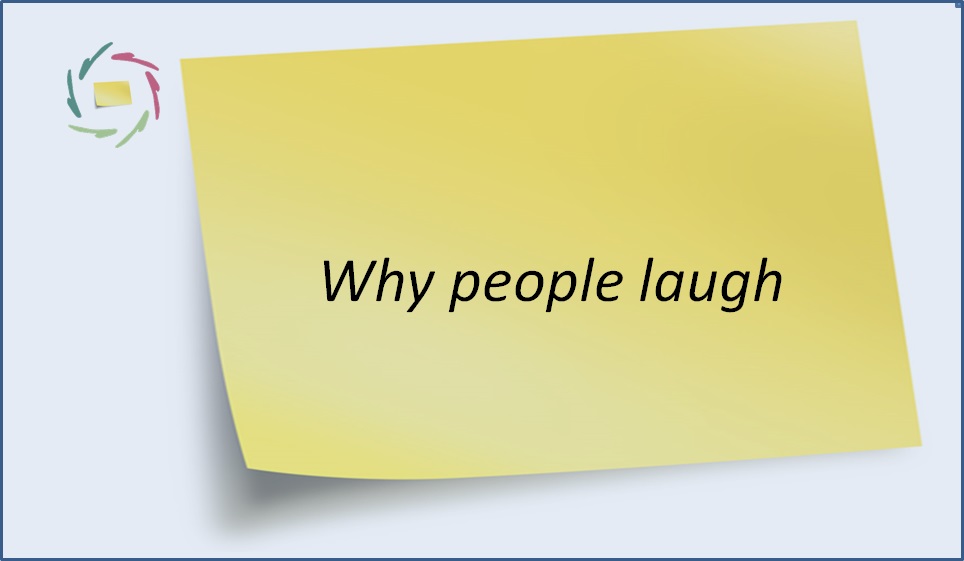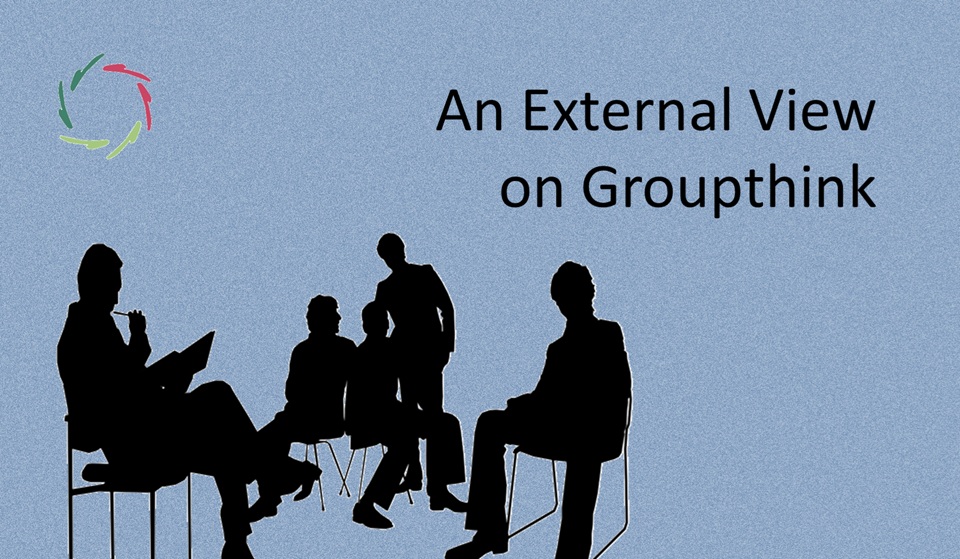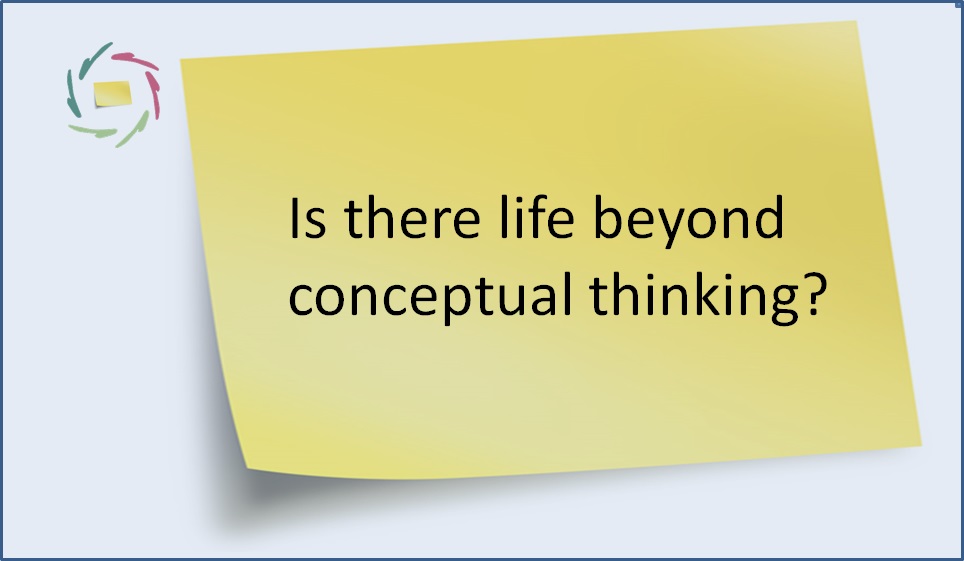63 Why people laugh

… for one thing only. But please, read this Sticky from beginning to end. Don’t go peeping now. We will reach the goal just in time …
◊◊◊
As you know, people laugh for many things. Most people also laugh many times each day. No other animal does this. We are the best laughers of this world, maybe even of this universe. In any Matrix, we would be the ‘laughing module’. In heaven, our roars form a continuous burden to God and the angels, who have until now never been seen laughing themselves. On the other side, the devil laughs sometimes, but mostly not with a good sense of humor.
◊◊◊
So we laugh for many things. But actually when you look a bit closer at these ‘many things’, they are always human, or feel human, or appear-to-be human. A monkey can make us laugh with foolish tricks, but the laughter is actually engendered by his human-like behavior. We recognize the human. Then we laugh. If we don’t recognize anything human in the monkey, there is no humor. The same with other animals. Cartoon animals show this very clearly. They don’t act like animals. They act like humans. Then we laugh.
◊◊◊
You’re not convinced? Just test it out today.
◊◊◊
- Let’s say you’ve gone through the test. You’ve heard some jokes and probably made some yourself. You’ve seen your kids laugh while playing. Maybe somewhere a cat couldn’t catch a mouse and pulled such a face of ‘disappointment’ that you just – rather irreverently – had to laugh. Well. You laughed because you recognized the ‘human’ sentiment where you weren’t expecting it. You laughed for the ‘human’. The cat probably had some other cat-specific sentiments. You didn’t recognize those and you didn’t laugh for them.
◊◊◊
Only people make people laugh. All kinds of people. Or?
◊◊◊
Another day. Another test. This time it’s even closer home than ‘human’. It’s no lesser than … you yourself. Surprised? The cat’s face is no other than your own. You are the one with the ‘disappointment’. And the mouse? Who knows what the mouse stands for. It may be anything. It may be everything. Looking at the cat, the surprise is that you recognize yourself. You feel a bit caught. Yet there is relief too. You feel understood. You are truly part of this world. This is: you are at your place. There’s surprise and relief at the same time. And it’s about you. All elements for laughter are there.
◊◊◊
Don’t believe me if you don’t. Do the test today. And please put much feeling into it.
◊◊◊
So is this the conclusion: we only laugh for one thing, namely ourselves? Not yet. We can go even further. We don’t laugh just for anything about ourselves, but only for one thing (watch this): a sudden and brief tension and relief in a connection between the ‘ego’ and the ‘deeper self’ (terms explained at other places). The cat is a good symbol for the deeper self, but we don’t readily expect it all the time. Then comes the ‘disappointment’. In this we recognize an action of the deeper self and a quick and vanishing ego-relation to it… And then it’s gone again. By the way…
◊◊◊
…did you notice the cat’s indignation at your laughter? You think she… knows?
◊◊◊


